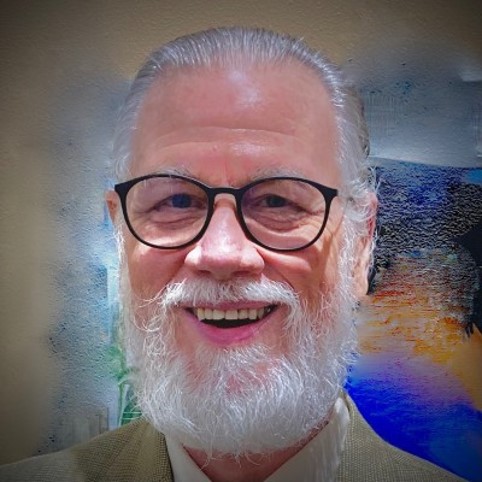Kurt Bruder

- Contact
-
- kurtbruder@tamu.edu
- BLTN 305B
- Specialty
- Language & Social Interaction, Intercultural Communication
Introduction
Lecturer
PhD in from University of Texas-Austin.
Joining us most recently from New Mexico Military Institute.
Fulbright in Estonia.
Has taught many, many a course across communication and journalism.
Has taught in a vast array of locations including Saudi Arabia, China, Malaysia, Singapore, Boston, Estonia, and Lubbock!
Teaching COMM 230, 305, and 308 this fall.
Bio
Dr. Kurt “Kailash” Bruder (Ph.D., M.Ed.) is communication scholar-teacher, trained psychotherapist, and dedicated spiritual practitioner. He is the author/recording artist of Following Sound into Silence: Chanting Your Way Beyond Ego into Bliss (2008, Hay House), a non-sectarian, intellectually satisfying, beautifully illustrated guide to devotional chanting, accompanied by a CD of 15 authentic mantras.
In his scholarly work, he has investigated a variety of topics dealing with the subject of identity, the sense of self, one’s response to the question, “Who am I?” The social interaction in which we’re included from our infancy equips people with the means for building an identity. We learn to distinguish ourselves from others. This is necessary for conducting ourselves in everyday life, but it’s not without its darker side: our separation from one another (and all things else) fuels human suffering. Finding a practical solution to the more pernicious aspects of selfing is the perennial preoccupation of spiritual communities throughout history. Lately, Bruder has been attempting to re-conceptualize folk notions of “soul,” “spirit,” ”self” (and related themes) in terms of processes of social interaction and their artifacts. The language most commonly used to discuss this more subtle dimension of human experience is anchored in inherited terminology that encourages the misguided reification (“misplaced concreteness”) of what are, in fact, dynamic, distributed social processes. These include categories from Greek antiquity, those associated with Cartesian body/mind dualism, Christian tripartite anthropology (mind, body, and spirit), and a materialism (modern and postmodern) that is hostile to most efforts at treating consciousness seriously, as well as others from a variety of Eastern mystical traditions.
Here at TAMU, Dr. Bruder has taught Theories of Communication, Research Methods for Communication, and Communication Technologies Skills.
